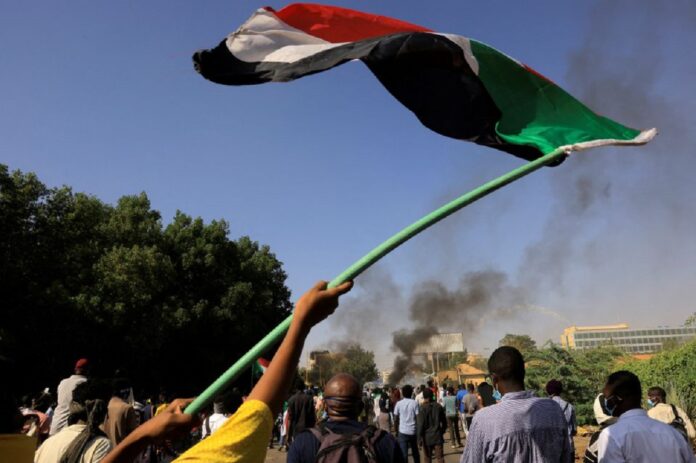The United Nations said it had begun talks in Sudan on Monday to save the move towards democracy after a military coup.
UN officials contacted political parties to find a way to move forward, and the military did not challenge the initiative, UN Special Rapporteur Volker Perthes told reporters.
“We want to act quickly,” he said.
The UN plan currently represents the only substantive effort to resolve the political crisis.
The October military takeover destroyed a power-sharing agreement with private leaders aimed at paving the way for the 2019 post-overthrow elections of Omar al-Bashir leaders.
The coup also blocked the opening of the Western-backed economy after decades of isolation and sanctions.
Protesters regularly appear on the streets demanding civilian control, and medical personnel in line with the protests say more than 60 people died in clashes with security agencies.
“We hope these talks will be like confidence-building measures, at least to help reduce violence,” Perthes said.
Protesters and political parties expelled by the coup have so far refused to negotiate directly with the military.
Therefore, the United Nations will begin by approaching the groups individually, hoping to move to the second phase of direct or indirect negotiations, Perthes said.
The first session on Monday afternoon will be attended by a civil society group.
“We will have different stakeholders talking to each other every day,” he said.
UN officials urged the group to present a vision for progress at the end of the meeting with the aim of forming an agreement on agreements and disagreements.
In a statement late Monday, the military-led Sovereign Council welcomed the initiative and called for the participation of the African Union.
Perthes said that only Bashir’s former ruling party and the Sudanese Communist Party rejected the initiative altogether.
He said it would be difficult to set a time frame to finish and start negotiations, and if an additional week or two is needed, no strict deadline will be imposed.
“Time is precious, we know it. There is a lot of pressure on Sudan and our situation,” he added.
Unless a new path for transition and a path to credible elections are found, Sudan’s economic plight can worsen and instability can spread inside and outside the border, analysts and diplomats say.
Perthes told Reuters that he would find a way to take advantage of offers from international players such as the United States and Saudi Arabia, which are major donors.
The United States, Saudi Arabia, and a few others are very deeply involved and they helped develop some ideas,” he said.
Further large-scale protests against the military are planned, with another round scheduled for Wednesday.
UN begins talks in Sudan to resolve post-coup crisis.







